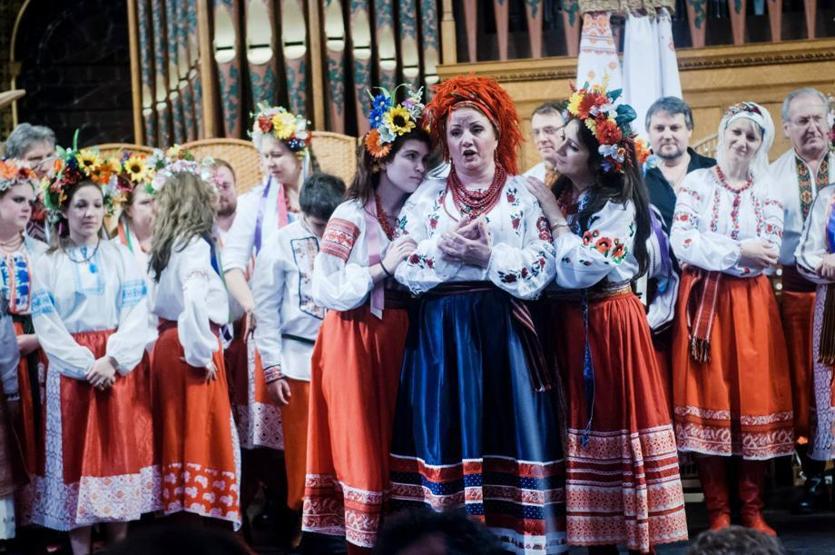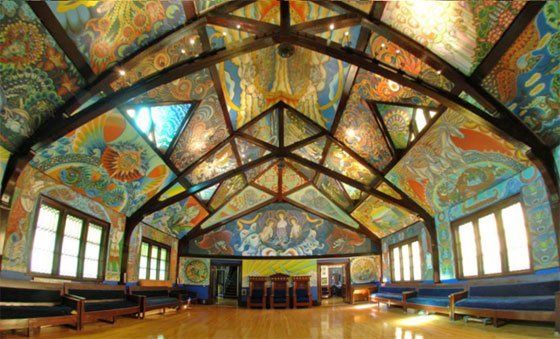http://bostonvoyager.com/interview/meet-bulent-guneralp-voice-studio-arlington
Meet Bülent Güneralp of Bülent Güneralp Voice Studio in Arlington
BostonVoyager Staff October 30, 2017
Today we’d like to introduce you to Bülent Güneralp.
Bülent, can you briefly walk us through your story – how you started and how you got to where you are today.
I am a professional singer, drummer and instructor. I perform in many genres, but my career focus is opera.
I was introduced to opera by, and received my first vocal training from my mother, sublime dramatic coloratura soprano Aysel Tunalı in Istanbul, Türkiye (Turkey). Then I studied with coloratura soprano Suna Korat (a national artist of Türkiye). I studied at The Istanbul University State Conservatory with Çiçek Kanter. I was invited to the US by conductor, William Thomas. I continued my studies at Longy School of Music with Donna Roll, and graduated from The Boston Conservatory, where I studied with the amazing Robert Honeysucker, who just passed away. As I continued performing, I developed my teaching studio in Boston.
The first person who encouraged me to teach was my music theory teacher, Mine Mucur, at The Istanbul University State Conservatory, where I majored in voice/opera, and studied piano. In my later conservatory years, I also played drums in The Istanbul State Theater Orchestra conducted by Önder Bali.
Some vocal highlights in the US include: the Turkish language premier of the role of Sultan in the Ukrainian opera Cossack Beyond The Danube by Semen Hulak-Artemovsky with The Commonwealth Lyric Theater (My mother and I created the Turkish libretto for this role); the roles of The Master and Yefim in the US-premiere of the opera Desire to Sleep by Moshe Shulman with The Juventas New Music Ensemble; the narrator in the English language world-premiere of Expérience by Phivos-Angelos Kollias with The Juventas New Music Ensemble; the world-premiere of Missa Patri Pio by Leonardo Ciampa; the role of Jewish Man in the world-premiere of the opera The Prioress’s Tale by Delvyn Case; The Omaggio al Bel Canto Best Interpretation Award at The Stelle dell’Anno Nuovo Festival in Boston (organized for the members of The Boston Opera Collaborative by The Dante Alighieri Society Italian Cultural Center of Massachusetts and The Consulate General of Italy); official recognitions by The Massachusetts State Senate and Thomas Menino; a feature program on CCTV; and a performance at the historic USS Salem in the inaugural maritime festival of Quincy, Massachusetts, where I sang the solos of Emile de Becque from the musical South Pacific by Rodgers & Hammerstein.
Overall, has it been relatively smooth? If not, what were some of the struggles along the way?
For many years I taught the trio of voice, drums and piano both in my private studio and in music schools. As my studios grew, it was a challenge to maintain a healthy balance between performing and teaching. Teaching had become very intense. Now I mostly teach voice in my private studio with reduced hours. I am resuming performing.
Alright – so let’s talk business. Tell us about Bülent Güneralp Voice Studio – what should we know?
I teach students of all ages, voice types and levels from beginner to professional. They come from diverse backgrounds such as opera, musical theater, jazz, pop, rhythm & blues, bluegrass, country, rock, heavy metal and public speaking. Their reviews at bulentguneralp.com speak for themselves.
Technique comes before genre. The main technical aim in the studio is to help students express their own, natural, pure, and style-free voice, which can be applied to any musical style or vocal field. Lessons typically include physical warm ups, breathing exercises, vocal exercises and technical work, visualizations, basic music theory and ear training, musical and repertoire work, diction work, characterization, and audition / concert preparation. However, all the training and technical mastery should serve to help the student sing from the heart, which may require a fresh look inside and even a journey toward what we really are, transcending both what we think we are and what others think we are. In this sense, the work I do with students may vary according to their readiness and willingness to progress at different levels toward voicing themselves with self-confidence.
The diverse and colorful conversations I have with students in the studio range from the vocal maxims of the great Italian master Giovanni Battista Lamperti to the Thrive diet of the Canadian triathlete Brendan Brazier.
Any shoutouts? Who else deserves credit in this story – who has played a meaningful role?
Credit goes to so many people, including family members, friends, teachers and colleagues, that it would be impossible to name them all in an interview.
I will mention two:
First and foremost, my mother Aysel Tunalı, who always guides, supports and inspires me with love and wisdom. Words fail here.
Second, conductor William Thomas, who discovered me in Istanbul during his 1998 tour of Greece and Turkey, performing Beethoven’s 9th Symphony. He was looking for local soloists, and the Cemal Reşit Rey Opera Company, where I was preparing to sing in Mozart’s Die Entführung aus dem Serail (The Abduction from the Seraglio), recommended me to him. After I sang under his direction in Istanbul, he returned to the United States with a recording of mine, and a personal recommendation for me to attend Longy School of Music. Shortly after that, I received a letter from Longy, offering me a full scholarship, and an invitation from William Thomas to solo in Händel’s Messiah Oratorio in Tokyo, Japan. Since then, I have sung in many performances under his direction.
Mr. Thomas passed away in 2013. He was my professional mentor and a very special friend, as he was to so many other artists. During his many years of service on the faculty of Phillips Academy in Andover, and as Founding Music Director of The Cambridge Community Chorus, he touched and enriched the lives of literally thousands of students, performers and colleagues, including me. Words fail to express my gratitude. He was a most precious and generous human being, and a sublime conductor, cellist, musician and artist.
In 2008, The Cambridge City Council dedicated the corner of Massachusetts Avenue and Douglass Street as “William Ethaniel Thomas Square”.

THE BOSTON GLOBE
MAY 15, 2015
OPERA REVIEW
A ‘Cossack’ from far beyond the Danube
By Jeremy Eichler GLOBE STAFF
NEWTON – It’s a truism by now that the line between art and politics can be exceedingly thin. Last year, the Russian soprano Anna Netrebko made headlines for a highly public donation to the opera house of Donetsk, and for posing with the flag of Novorossia, a separatist confederation in eastern Ukraine.
Yet when it comes to disentangling the musical legacies of this particular region, the task is hardly simple. Take the Ukrainian-born singer Semyon Hulak-Artemovsky (1813-1873). As a boy soprano, he was recruited from Kiev by Glinka, one of the fathers of Russian national opera. He trained both in Russia and in the great houses of Europe, and he sang professionally in St. Petersburg, both in fashionable Italian opera productions as well as in Russian ones. He was in fact one of the original creators of the role of Ruslan in Glinka’s “Ruslan and Lyudmila.”
